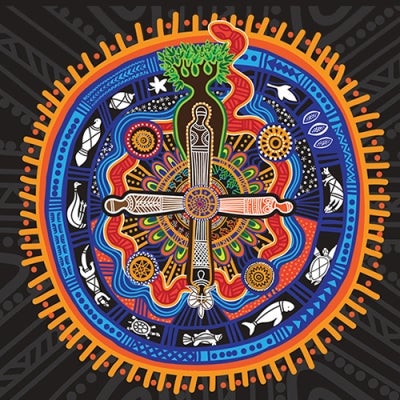Refine results
-
14 December 2012Book page
HREOC Social Justice Report 2002: International developments in the recognition of the rights of Indigenous peoples
Social Justice Report 2002 back to contents Chapter 6: International developments in the recognition of the rights of Indigenous peoples Indigenous peoples in international law A history of exclusion The Working Group on Indigenous Populations from exclusion to participation at the international level Commitments to developing partnerships with Indigenous peoples from Rio and Vienna to… -
14 December 2012Book page
Social Justice Report 2006: Chapter 4: International developments on the rights of indigenous peoples – Closing the ‘protection gap’
Social Justice Report 2006 Back to Contents Chapter 4: International developments on the rights of indigenous peoples – Closing the ‘protection gap’ Back to Report Home (TOC) Chapter 2 Chapter 3 >> Chapter 4 International developments on the rights of indigenous peoples United Nations Reform and human rights The making of global commitments to action – The Millennium Development Goals… -
14 December 2012Book page
Social Justice Report 2000: Chapter 5: Reparations
Social Justice Report 2000 back to contents Chapter 5: Reparations Introduction Reparations and forcible removal policies Reparations in international law: the van Boven principles and international treaties Reparations in Australia: the Federal government's response An apology Compensation Litigation International comparisons Canada i) Gathering strength - responding to the Royal Commission… -
15 July 2014Book page
Chapter 1: How far have we come? Looking back on 20 years of the Social Justice Commissioner role
1.1 Introduction This year marks 20 years since the establishment of the Aboriginal and Torres Strait Islander Social Justice Commissioner (Social Justice Commissioner) role under the Australian Human Rights Commission Act 1986 (Cth). When I first started in this position I was asked if any of the previous Commissioners had left any words or notes of advice. I answered them ‘no, but they all… -
14 December 2012Book page
Chapter 1: Towards a reconciled Australia: An agenda of hope - Social Justice Report 2010
Social Justice Report 2010 Back to Contents Chapter 1: Towards a reconciled Australia: An agenda of hope 1.1 Introduciton 1.2 Human rights: the overarching framework 1.3 Addressing Aboriginal and Torres Strait Islander disadvantage by rebuilding relationships 1.4 Conclusion 1.1 Introduction My son, your eyes search mine Hurt and puzzled by colour line Your black skin as soft as velvet shine… -
14 December 2012Book page
Native Title Report 2003 : Chapter 1
Chapter 1: Native title and the right to development The right to development Non-discriminatory Development Participatory Development Culture and Development Development that realises economic, social and cultural rights Self-Determined Development Sustainable Development A sustainable development framework for native title negotiations Sustainable Development Relies on an Effective Process… -
Aboriginal and Torres Strait Islander Social Justice14 December 2012Publication
Submission: Human rights and fundamental freedoms of Indigenous people
Submission to the Special Rapporteur on the situation of human rights and fundamental freedoms of indigenous people – Australian mission Indigenous People's Organisations Network of Australia 17 - 28 August 2009 Download Complete report PDF [667 KB] Complete report Word [502KB] Special Rapporteur on Indigenous Peoples’ - Australian Mission The Australian Human Rights and Commission has made… -
Commission - General14 December 2012Webpage

Links to Human Rights Organisations and Resources
This website contains links to other websites that are external to the Australian Human Rights Commission. The Commission takes reasonable care in linking websites but has no direct control over the content of the linked sites, or the changes that may occur to the content on those sites. It is the responsibility of the user to make their own decisions about the accuracy, currency,…
Pagination
- Current page 1
- 2
- Next page Next ›
- Last page Last »
